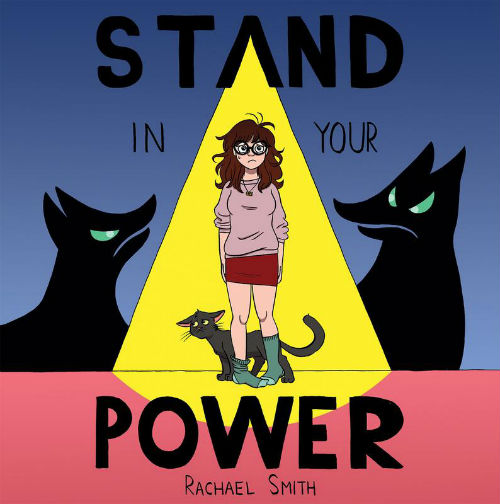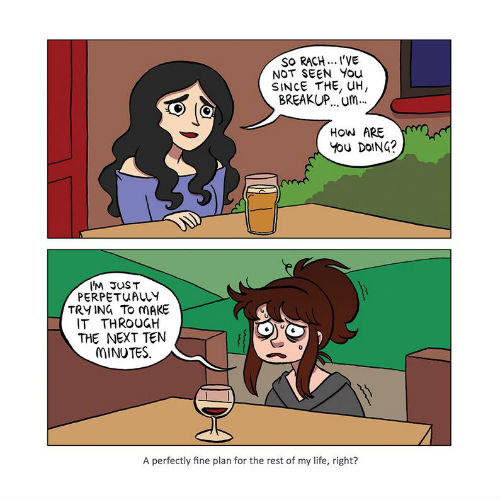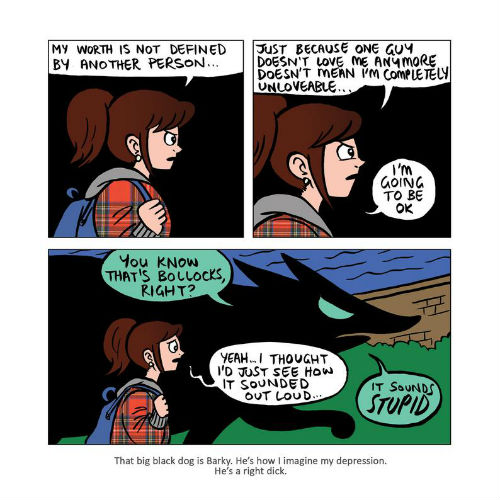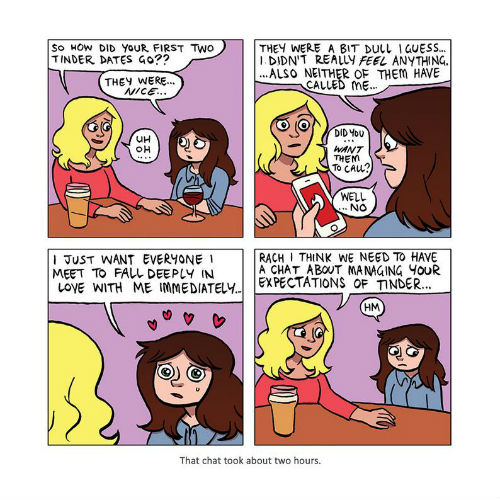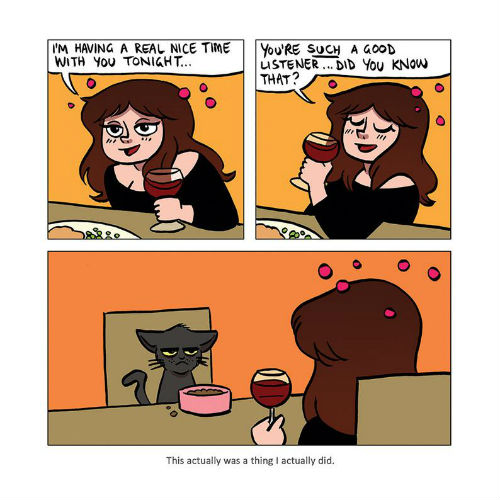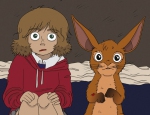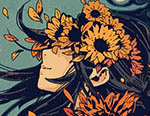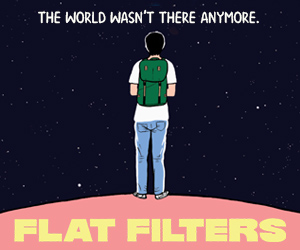Acting as both chronological and thematic sequel to her earlier book Wired Up Wrong, but still entirely accessible as a standalone work, Rachael Smith’s Stand in Your Power explores the inevitable life-changing consequences of a relationship break-up and the attendant thoughts of identity, loneliness and self-doubt that experience provoked. Smith’s autobiographical work has always had an accessible character in terms of both presentation and her likeable but raw honesty. She’s also an artist whose practice and style straddles the line between the alt and the mainstream, ensuring there’s the broadest appeal for her work. Something that’s so important when it comes to the side of her output that focuses on graphic medicine and her experiences of living with depression and anxiety.
Stand in Your Power opens with a simple but powerful series of black pages with one stark image interspersed amongst them, symbolising the sudden shift in Smith’s world as one chapter ends and another begins. Finding herself single and having to make major readjustments, Smith starts navigating the new course her life has taken. One that will include recovery, therapy, self-reflection, dating and starting over.
In Wired Up Wrong Smith used the familiar “black dog” metaphor for depression but imbued it with a personality and presence all of its own. The often taunting “Barky” had a physicality that would shift and morph depending on how her feelings of anxiety were affecting her at any given moment. This time around Barky is joined by Friendly, a white dog representing the opposing side of her psyche and one whom she describes self-deprecatingly as a “cheesy and heavy-handed” piece of symbolism. The third co-star of Stand in Your Power is Smith’s cat Rufus who once again meanders in and out of the narrative with a typically feline independence.
As with Wired Up Wrong, each largely one-page strip has an additional line of commentary below it adding an extra witty or biting edge to the panels above. Some of the shorts are more standard slice-of-life observations, some use visual metaphor to make their point and, on occasion, Smith moves into more serious territory (including a section on self-harm that is colour coded for those wishing to skip it).
It’s all touchingly recounted, including the devastating emotional and physical reactions to the end of a relationship, the constant reminders of perceived loss and, yes, the inevitable self-destructive behaviour (at one point Smith tortures herself by revisiting previously happy memories and wondering if her ex-partner’s affections for her had already dwindled at those points). But, like Wired Up Wong, for all the serious topics being examined, Stand in Your Power is also a very funny book with Smith being unafraid to laugh at her own foibles while simultaneously recognising that these are experiences that will be familiar to many. In one memorable segment she reads a magazine article on how a new home should “tell the story of you” and promptly declares “So I should just set everything on fire I guess…”
As a cartoonist Smith has always had a particular knack for expressive visual characterisation and sublime comedy timing and that is once again very much in evidence in these pages. Ultimately, Stand in Your Power is a story of recovery which will doubtless resonate with many, and also a reflection of one of the greatest strengths of comics as a form; its ability to immerse us so fully in the lives of others through that unique interpretive relationship between reader, creator and page. Stand in Your Power may have emerged out of the cathartic but it’s a story that will have a far wider appeal to those who can see their own experiences in those of Smith’s. Yet again Rachael Smith reminds us exactly why she’s one of the most important creators working in autobiographical comics on the British small press scene.
For more on Rachael Smith’s work visit her site here and follow her on Twitter here. You can order STand in Your Power from her online store here.
Review by Andy Oliver





